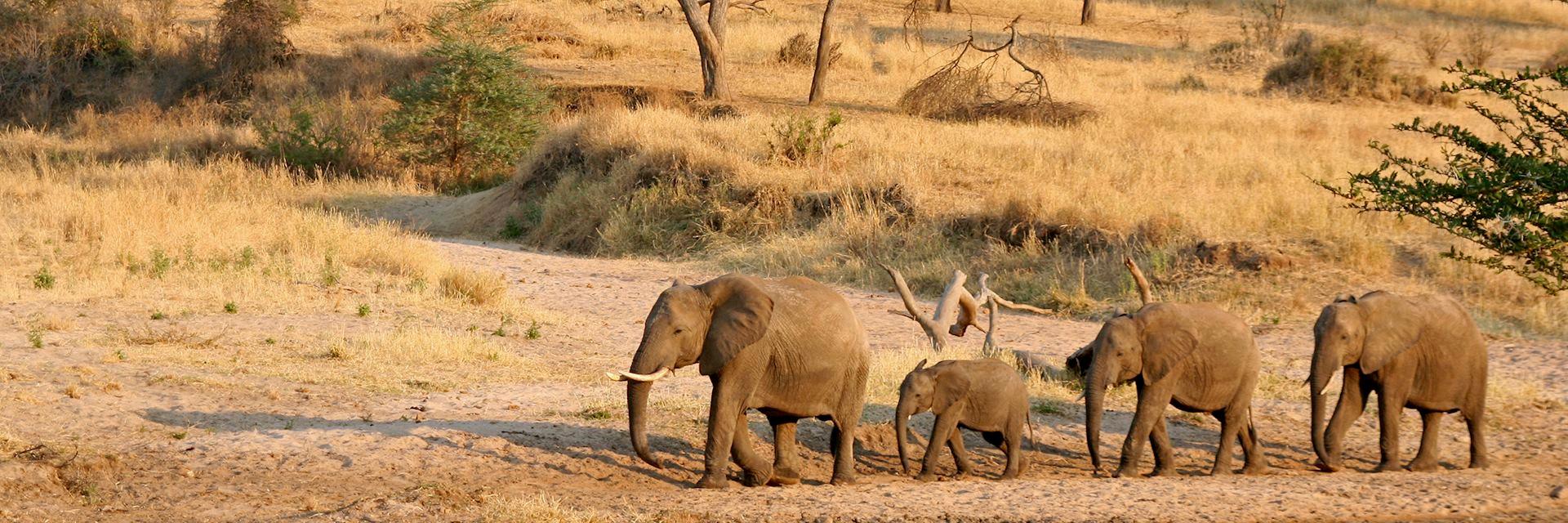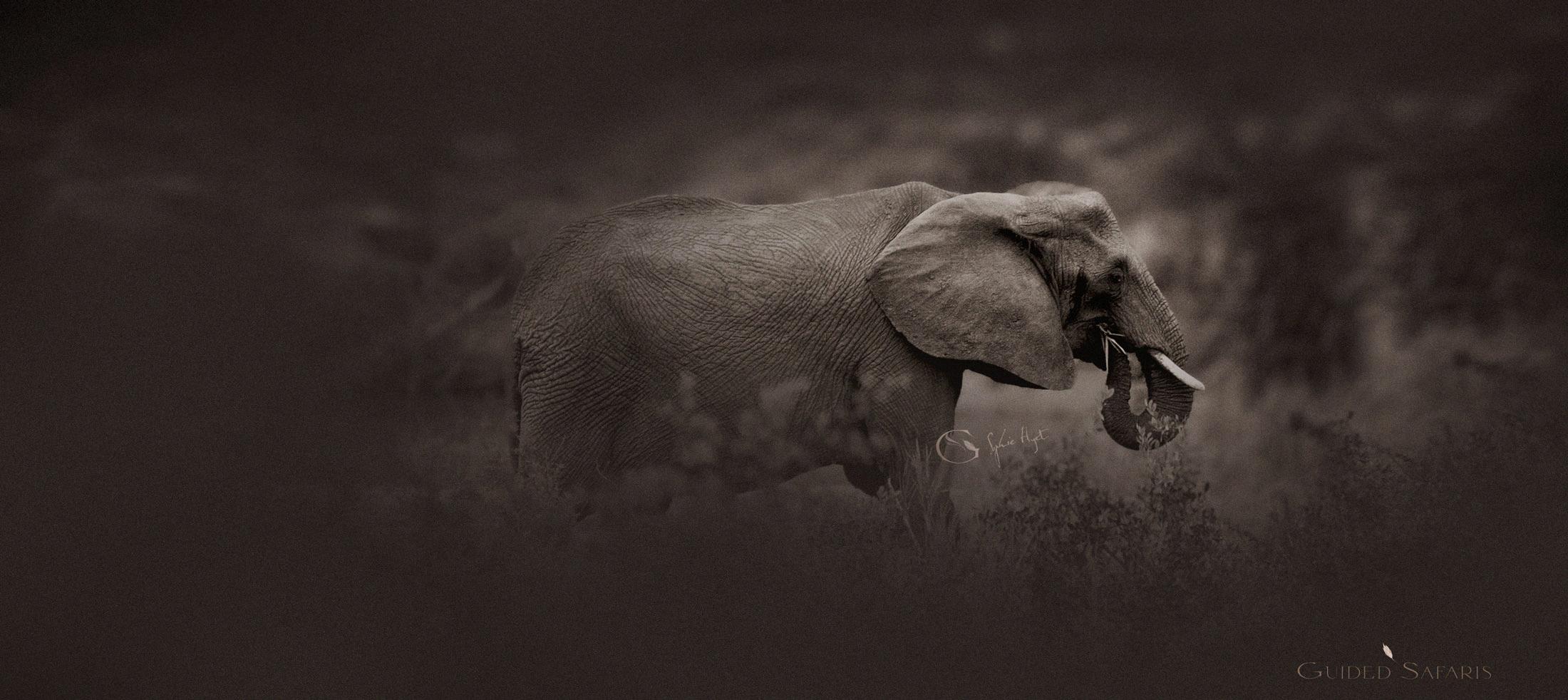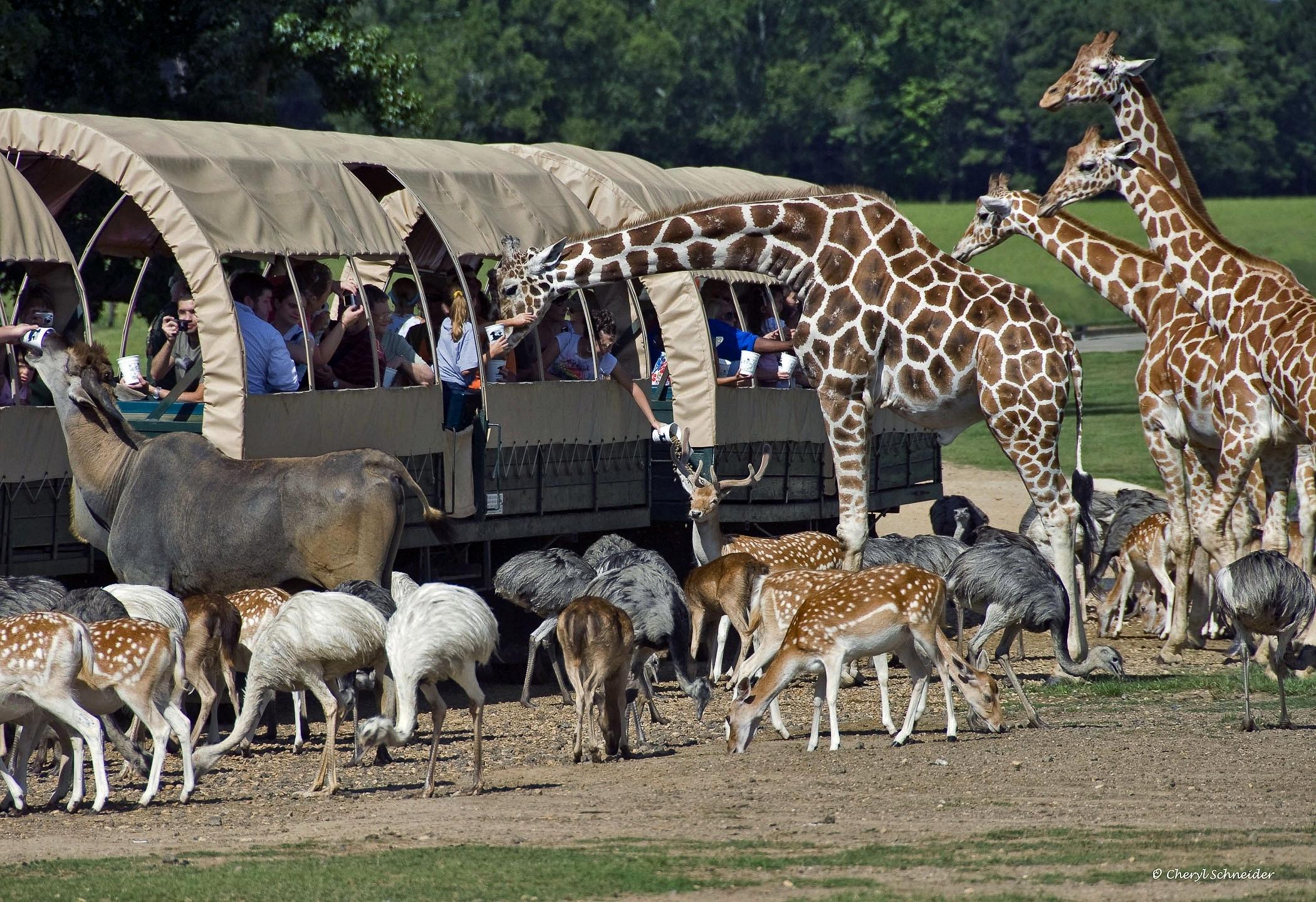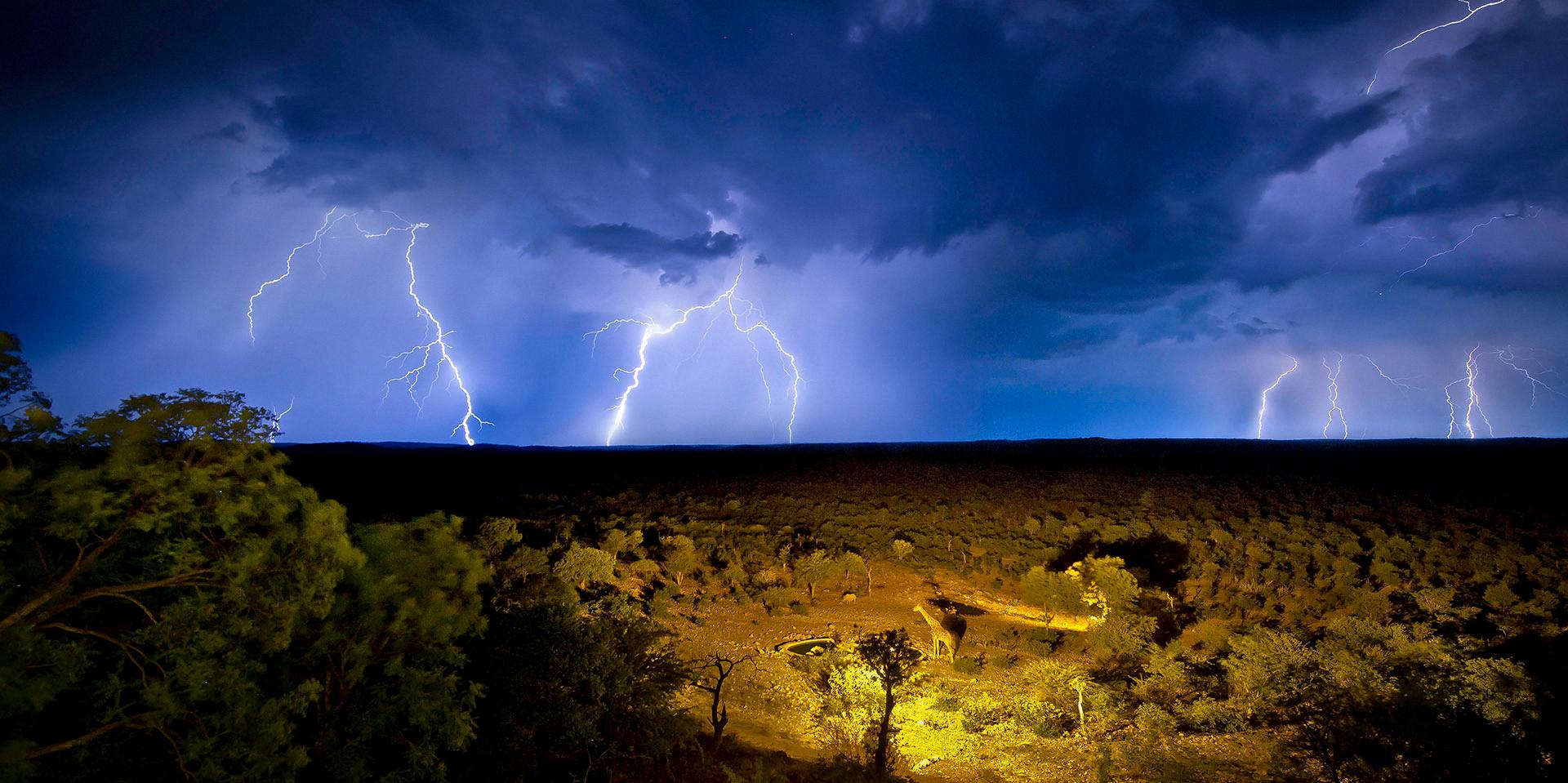Going on a guided safari is a once-in-a-lifetime experience that allows you to witness the beauty of Africa’s wildlife up close and personal. A guided safari is a tour led by a ranger, also known as a safari guide, who has extensive experience and knowledge of the bush and the animals inhabiting it. In this blog post, we will discuss everything you need to know about guided safaris, including the cost, what to expect, and how to choose the right safari destination.
Cost of a Guided Safari
The cost of a guided safari can vary greatly depending on the location, length of the safari, and level of luxury. The base average African safari cost is somewhere between $125 to $1,500 per person, per day or $625 to $7,500 per person for a 5-day safari. This price may or may not include accommodations, transportation to and from the safari camp, tips, and meals. It is important to do your research and choose a safari that fits your budget and desired level of luxury.
What to Expect on a Guided Safari
On a guided safari, you can expect to spend your days exploring the bush in search of Africa’s wildlife. Your ranger will lead you on game drives, walking safaris, and even night drives to give you the best chance of seeing animals in their natural habitat. You will also have the opportunity to learn about the animals and their behaviors, as well as the ecosystems they live in.
Most guided safaris take place in national parks or private game reserves, which offer a range of accommodations from rustic tent camps to luxury lodges. Your ranger will typically stay with you throughout your safari, acting as your guide and providing valuable insights into the wildlife and the African bush.
When to Go on a Guided Safari
The best time to go on safari is between June and October, during the dry season. This is a cooler time of the year and you are more likely to see animals, who are searching for water sources. During these months, you can also catch the iconic Masai Mara migration. However, some parks and reserves offer great game viewing year-round, so it is important to do your research and choose a safari based on the animals you want to see and the experiences you want to have.
How to Choose the Right Safari Destination
Choosing the right safari destination can be overwhelming, with so many options to choose from. Here are some tips to help you narrow down your options:
1. Choose the right time of the year to go based on the wildlife you want to see.
2. Decide what you want to see, whethr it’s the Big Five or specific species like gorillas or lemurs.
3. Decide which part of Africa to explore, whether it’s East Africa, Southern Africa, or Central Africa.
4. List your must-do experiences, such as a hot air balloon ride over the Serengeti or a walking safari in South Luangwa.
5. Keep in mind who you’re traveling with, whether it’s a family safari or a romantic getaway.
Going on a guided safari is an unforgettable experience that offers a glimpse into the beauty of Africa’s wildlife. With the right planning and research, you can choose a safari that fits your budget, desired level of luxury, and the experiences you want to have. So, grab your camera and get ready to embark on the adventure of a lifetime!
The Role of a Safari Guide
A safari guide is commonly referred to as a ranger. A ranger is a highly experienced and knowledgeable professional who is trained in the art of leading safari tours into the wilderness. They are typically experts in the flora and fauna of the area and are able to provide visitors with valuable insights into the behavior and habits of the animals that inhabit the bush. Rangers are often employed by national parks and game reserves, and they are responsible for ensuring the safety of thir guests while providing an informative and enjoyable safari experience. In addition to their expertise in the bush, rangers are often skilled communicators, able to convey complex information in an engaging and easily understandable manner. So, if you’re planning on going on a safari, you can rest assured that a ranger will be there to guide you through the wilds of Africa.
Source: audleytravel.com
Average Cost of an African Safari
If you are planning to embark on an African safari, it is important to considr the associated costs. On average, the cost of an African safari ranges from $125 to $1,500 per person, per day. This means that for a 5-day safari, the cost can be anywhere between $625 to $7,500 per person. It is important to note that the cost may or may not include accommodations, transportation to and from the safari camp, tips, and meals. Factors such as the type of safari, location, time of year, and level of luxury can also influence the overall cost. Therefore, it is necessary to research and plan accordingly to ensure that you have a memorable and enjoyable safari experience within your budget.
The Best Time to Go on an African Safari
The best time to embark on an African safari is during the dry season, which typically runs from June to October. This period is ideal as the weather is cooler, making it easier to navigate through game reserves and observe wildlife. Furthermore, during this time, water sources become scarce, and animals tend to congregate arond remaining waterholes, making them easier to spot. Additionally, if you are looking for an unforgettable experience, witnessing the Masai Mara migration in Kenya during this period is a must. the months between June and October are the optimal time to embark on an African safari due to the dry weather conditions, improved wildlife sightings, and the opportunity to witness the Masai Mara migration.
Choosing an African Safari
Choosing an African safari can be a daunting task, but there are several factors to consider in order to make an informed decision. Firstly, it is important to choose the right time of year to go based on the weather conditions and animal migration patterns. Secondly, you should consider what you want to see, whether it be the Big Five, specific bird species, or cultural experiences.
Thirdly, you should decide which part of Africa you want to explore, as each region has its own unique wildlife and culture. East Africa is known for its vast savannahs and the annual wildebeest migration, while southern Africa offers a diverse range of habitats and wildlife.
Fourthly, make a list of must-do experiences, such as hot air balloon rides, walking safaris, or cultural tours. This will help narrow down your search for a tour operator or safari company that can offer these experiences.
Lastly, keep in mind who you are traveling with and teir needs and preferences. Some safaris are better suited for families with young children, while others may be more appropriate for couples or solo travelers.
By considering these factors, you can choose an African safari that will provide you with an unforgettable experience and memories that will last a lifetime.
Cost of Hiring a Top Safari Guide
The cost of hiring a top safari guide can vary depending on the location and the level of expertise of the guide. In general, top safari guides are highly experienced and knowledgeable about the wildlife and ecosystems of the area, and their services can command a premium price.
On average, the cost of hiring a top safari guide can range from US$350 to US$700 per day. This may seem like a high cost, but it is important to remember that the guide’s services can greatly enhance the overall safari experience. A top safari guide can provde expert insight into the behavior of the animals, help guests to spot rare species, and ensure that the safari is conducted in a safe and responsible manner.
Additionally, many top safari guides have specialized skills or knowledge, such as birding expertise or experience with tracking elusive wildlife. These skills can be particularly valuable for guests who are interested in a specific aspect of the safari experience.
The cost of hiring a top safari guide can be significant, but it is often well worth the investment for those who are looking for an exceptional safari experience.
Source: luxurysafaricamps.com
Types of Safaris
There are various types of safaris available that cater to different interests and preferences of travelers. One of the most popular types is the Photographic Safari, which is perfect for nature enthusiasts and photographers who want to capture the stunning landscapes and diverse wildlife of Africa. Another type is the Cycling Safari, which offers a unique perspective of the African bush while getting some exercise. For those who prefer a slower pace, Walking Safaris are a great option to explore the wilderness on foot while learning abot the local flora and fauna. Horseback Safaris offer a more traditional and adventurous way of exploring the wilderness, while Water Safaris allow you to spot wildlife from the comfort of a boat or canoe. With these various options, travelers can choose the safari experience that best suits their interests and preferences.
Comparing Safari Experiences in Kenya and South Africa
Both Kenya and South Africa offer amazing safari experiences, however, the best option for you depends on your personal preferences.
Kenya is known for its vast savannahs, where you can witness the iconic Great Migration of wildebeest and zebras. The country’s national parks, such as Masai Mara and Amboseli, are home to a variety of wildlife including lions, elephants, and giraffes. Kenya’s safari lodges and tented camps also offer a more traditional, rustic experience, giving you a chance to immerse yourself in the African wilderness.
On the other hand, South Africa offers a more diverse experience with a mix of savannahs, mountains, and coastal areas. Kruger National Park is one of the most popular safari destinations in South Africa and is home to the Big Five (lion, leopard, elephant, buffalo, and rhino). The country also has private game reserves that offer more exclusive experiences, such as guided walks and night safaris. South Africa’s infrastructure is more developed, making it a great option for first-time safari goers who might be more comfortable with better roads and facilities.
In terms of family-friendliness, South Africa might be a better option as it offers more activities for children, such as visiting Cape Town’s penguin colony, going on a whale watching tour, or visiting the beaches along the coast. However, both countries offer a range of lodges and camps that cater to families.
Both Kenya and South Africa offer unforgettable safari experiences. It ultimately coes down to personal preferences, budget, and travel goals.
What Activities Are Not Allowed on an African Safari?
When going on an African safari, there are a few things that you should avoid doing in order to ensure a safe and enjoyable experience. Firstly, it is important to never stand up at an animal sighting. This is because the sudden movement can startle the animals and cause them to attack. Additionally, it is crucial not to call out to animals as this can also startle them and put you in danger.
Another thing to avoid is spending too much time at a sighting. While it may be tempting to stay and observe the animals for as long as possible, it is important to remember that you are in their territory and must be respectful of their space. Additionally, becoming impatient on safari can be dangerous as it can lead to reckless behavior such as leaving the vehicle or making sudden movements.
Lastly, it is important to prepare yourself for the safari experience. This includes packing appropriate clothing, being aware of the local wildlife, and listening to your safari guide’s instructions. By following thee guidelines, you can ensure a safe and enjoyable safari experience.
Duration of an African Safari
To truly experience the wonders of an African safari, it is recommended to plan for at least 7-10 days. This will give you ample time to explore different regions and habitats, and increase your chances of seeing a wide variety of wildlife. It is recommended to stay at multiple camps, for a minimum of two nights each, to fully immerse yourself in the safari experience. This will also give you the opportunity to participate in early morning and late afternoon game drives, whih are the most active times for animals. In summary, plan for at least 7-10 days and multiple camps to ensure a fulfilling and unforgettable African safari experience.
Source: louisiananorthshore.com
The Safest African Country for Safari
Botswana is widely regarded as the safest African country for safari. This is due to the country’s stable political climate, low crime rates, and well-managed national parks and game reserves. Botswana has a long history of political stability, with relatively few incidents of violence or civil unrest in recent years. This makes it a secure destination for travelers seeking an authentic African safari experience without the safety concerns that can sometimes arise in other African countries. Additionally, Botswana’s national parks and game reserves are renowned for their well-managed conservation programs and strict safety protocols, ensuring a safe and enjoyable safari experience for visitors. While Botswana may not be the cheapest safari destination in Africa, it offers a unique and rewarding experience that is well worth the investment for those seeking a safe and unforgettable adventure.
Where Is the Best Place to Go On Safari for the First Time?
If you are planning to go on a safari for the first time, South Africa is a great destination to consider. It is an ideal choice for thse who are new to the adventure of a safari as it is a well-developed country and offers a wide range of safari options to choose from.
Kruger National Park is a popular safari destination in South Africa and is known for its exceptional game viewing opportunities. It is one of the largest game reserves in Africa and is home to a vast array of wildlife, including the Big Five (lion, leopard, elephant, rhino, and buffalo). The park offers a variety of accommodation options, from luxury lodges to budget-friendly campsites, making it accessible to all kinds of travelers.
Another excellent option for first-time safari-goers is the Sabi Sands Game Reserve. It is known for its luxurious lodges and offers some of the best game viewing opportunities in the country. The reserve is home to a high concentration of wildlife, including the elusive leopard, making it an excellent place for wildlife enthusiasts.
If you are looking for a more exclusive and intimate safari experience, the Madikwe Game Reserve is an excellent option. It is one of the lesser-known reserves in South Africa but offers an excellent game viewing experience. It is home to the Big Five and is known for its conservation efforts.
South Africa is a fantastic destination for first-time safari-goers. It offers a variety of safari options to choose from, and with its well-developed infrastructure, it is a safe and accessible country to visit. Whether you are looking for a luxury safari experience or a budget-friendly adventure, South Africa has something for everyone.
Exploring the Best Safari Destinations in Africa
While opinions on this topic may vary, Botswana is widely recognized as one of the best safari destinations in Africa. This is due in large part to its commitment to wildlife conservation and its extensive network of national parks and game reserves. The Okavango Delta, for example, is one of the most biodiverse areas in Africa and home to a vast array of wildlife, including elephants, lions, leopards, and hippos. Other notable parks and reserves include Chobe National Park, Moremi Game Reserve, and the Central Kalahari Game Reserve. In addition to the abundance of wildlife, Botswana also offers a range of safari experiences, from traditional game drives to walking safaris, mokoro (dugout canoe) safaris, and hot air balloon rides. Botswana’s unique combination of wildlife, conservation efforts, and safari options make it a top choice for nature lovers and safari enthusiasts.
Is Wearing Black Appropriate for a Safari?
It is generally not recommended to wear black clothing on a safari, as it can attract Tsetse flies. These flies are known for teir painful bite and are commonly found in areas with dense vegetation, such as savannas and forests. Tsetse flies are attracted to dark colors, including black and dark blue, so it is best to opt for lighter colored clothing, such as khakis, greens, and browns. Lighter colors not only help to repel Tsetse flies, but they also help to keep you cool in the hot and humid African climate. In addition to wearing light-colored clothing, it is also recommended to use insect repellent and wear long-sleeved shirts and pants for added protection against insect bites.
Source: africaneyestravel.com
How Much Should I Tip My African Safari Guide?
When it cmes to tipping your African safari guide, the general rule of thumb is to tip your guide USD10 and your tracker USD5 per person per day. It’s important to note that this tip is typically given at the end of the safari, not on a daily basis. However, it’s worth mentioning that this amount can be adjusted according to the number of people on the safari. For larger groups, a ‘per day per car’ amount may be more appropriate. It’s important to keep in mind that tipping is a way of showing appreciation for the hard work and dedication of your safari guide and tracker. They work tirelessly to ensure that you have the best possible experience on your safari, and a generous tip is a great way to show your gratitude.
Exploring Africa for the First Time: Where to Go?
Africa is a vast continent with an incredible diversity of cultures, landscapes, and wildlife. If you’re planning to visit Africa for the first time, tere are several destinations that are particularly well-suited for first-time visitors. Here are the top 10 destinations in Africa that you should consider:
1. Marrakesh, Morocco – This vibrant city is known for its bustling souks, stunning architecture, and delicious food. It’s a great place to experience North African culture and hospitality.
2. Cape Town, South Africa – With its stunning beaches, vibrant nightlife, and proximity to natural wonders like Table Mountain and the Cape of Good Hope, Cape Town is a must-visit destination in Africa.
3. Victoria Falls, Zimbabwe – One of the world’s largest waterfalls, Victoria Falls is a breathtaking natural wonder that should be on every traveler’s bucket list.
4. Mount Kilimanjaro, Tanzania – For those seeking adventure, climbing Africa’s highest peak is a once-in-a-lifetime experience. With its stunning views and incredible wildlife, Kilimanjaro is a must-visit destination for outdoor enthusiasts.
5. Serengeti National Park, Tanzania – This vast savannah is home to some of Africa’s most iconic wildlife, including lions, elephants, giraffes, and zebras. A safari in the Serengeti is a truly unforgettable experience.
6. Okavango Delta, Botswana – Known as the “jewel of the Kalahari,” the Okavango Delta is a unique ecosystem that supports a stunning array of wildlife, including elephants, lions, and hippos.
7. Volcanoes National Park, Rwanda – This park is home to some of the last remaining mountain gorillas in the world. Trekking to see these incredible creatures in their natural habitat is a once-in-a-lifetime experience.
8. Zanzibar, Tanzania – This stunning island off the coast of Tanzania is known for its pristine beaches, crystal-clear waters, and rich cultural heritage. It’s a great place to relax and soak up the sun.
9. Kruger National Park, South Africa – With its incredible diversity of wildlife, including the “Big Five” (lions, elephants, leopards, rhinos, and buffalo), Kruger National Park is a must-visit destination for wildlife enthusiasts.
10. Cairo, Egypt – This ancient city is home to some of the world’s most iconic landmarks, including the Pyramids of Giza, the Sphinx, and the Egyptian Museum. It’s a great place to immerse yourself in the history and culture of North Africa.
No matter which of these destinations you choose, your first trip to Africa is sure to be an unforgettable experience. Just be sure to pack sunscreen, insect repellent, and a sense of adventure!
Conclusion
A guided safari is an unforgettable experience that offers a unique opportunity to explore the African wilderness and get up close with some of the world’s most magnificent animals. With the help of an experienced ranger, you can learn abut the wildlife, their habitats and behaviors, and gain a deeper appreciation for the importance of conservation efforts. While the cost may vary depending on the type of safari and level of luxury, there are options available for all budgets. Choosing the right time of year, destination, and experiences can make all the difference in creating a truly memorable trip. Whether you’re traveling solo or with family and friends, a guided safari is an adventure of a lifetime that should be on everyone’s bucket list.




